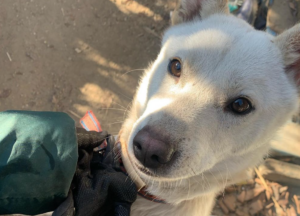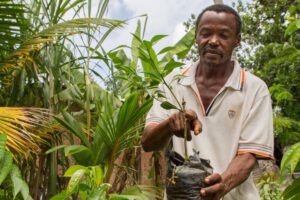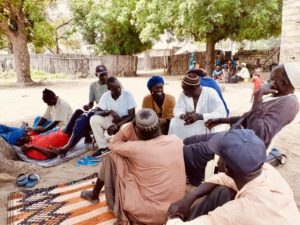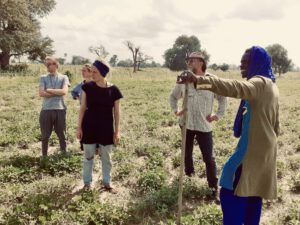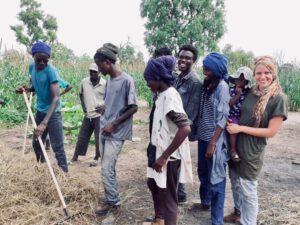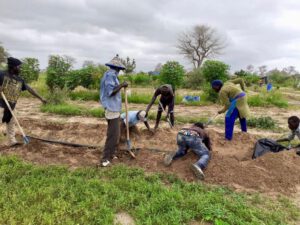Donated since 2013
Products donated 2019-20
Radical hope in challenging times
The inspiring and diverse work of groups supported by our Lush Giving streams offer hope of deep-rooted change. Through rapidly increasing ecological crises and uncertain political environments in 2019 and 2020, the work of projects supported through Lush Giving skilfully continued. While many of our grant recipients were impacted by the Covid-19 pandemic, many designed safe and creative ways to continue their committed work. Some groups applied for specific grants to support their communities through the Covid crisis.
Spanning grassroots activism, regenerative design, fighting animal testing, and more, Lush’s Giving streams have become more diverse over the years. Since Charity Pot was launched in 2007, we have expanded to make our charitable support wider reaching, now with six main Giving streams.
Dive into the wide reaching impact of Lush Giving during the 2019 to 2020 financial year below.
Banner picture above: Labour Behind the Label, an organisation which supports garment workers through strategic actions aimed at those involved in the production, marketing and consumption of clothing, as part of the movement for global justice.
In 2018, we streamlined Lush Giving processes and practices, clarifying our goals and making sure our philanthropic reach is keeping fresh, relevant and impactful.
While we waved goodbye to the FunD and self-imposed Carbon Tax funds, budgets still remained meaning that donations continued into the 2019-2020 financial year.
Donated to causes
Black Lives Matter
2020 has been a year of immense hardship for BIPOC communities. Through a pandemic which has disproportionately killed BIPOC peoples, a global movement against police violence and brutality emerged.
Lush is proud to have supported a number of grassroots organisations fighting for much needed change. Charity Pot Germany offered a grant to Death In Custody, a group challenging the inherent institutional racism of police detention, which has led to many deaths. Lush Germany also hosted a workshop with Phoenix, an anti-Racist training organisation inspired by the work of social justice campaigner Sybil Phoenix.
Throughout 2020, Lush internal teams, including leadership teams, created 100 Day Plans to commit to better diversity and inclusion, and anti-oppression.
Campaigning in the time of Covid
The Covid crisis plunged many communities into struggle and hardship. Throughout the pandemic, many of our charitable partners took their programmes online, or found creative and safe ways to keep their important work alive.
Re-Alliance, a network of regenerative design practitioners, received seed funding from the Lush Re:Fund in 2019. Since then, they have grown in size to include nearly 100 practitioners and organisations from across the world. Below, you can see a short film by one of their members, a Permaculture youth group from Almost Heaven Farms. While their schools were closed by the Covid pandemic, the youth group took the opportunity to deepen their ecological education.
The Lush manufacturing departments also found ways to lend their support during the pandemic. Through our Tailor Made Giving scheme, approximately 9,000 products were donated in the UK alone to frontline workers, Covid community groups and care homes.
The moulds department, usually constructing casts for our packaging-free products, also innovated a way of making PPE visors. They donated 1735 visors to doctors’ surgeries, care homes and hospitals in the Poole area.
Donations Made to grassroots groups
Donated to Grassroots groups
Lush created Charity Pot hand and body lotion in April 2007 to raise money for small, volunteer run charities and campaigns working in the areas of animal protection, human rights and environmental protection. Charity Pot grants range from £100 – £10,000. Globally, Charity Pot is now sold in 35 different countries. In the 2019-2020 Financial Year, Charity Pot donated to over 1,000 organisations worldwide, with 1,263 donations, totalling £3,313,404.31. Below are a few examples.
Lush Charity Pot Italy supported Centro Alfredo Rampi while Italy was in the frontline of the Covid pandemic in March 2020. Centro Alfredo Rampo has a free helpline for people facing the lockdown. With volunteer psychologists, the Centro were available to provide human and professional help for those in need of support and comfort, for parents seeking information for their children, and for health and rescue workers.
Lush Charity Pot Korea supported Animal Welfare Awareness, Research and Education (AWARE), who are tackling animal abuse and the systemic mistreatment of animals in research, legislation, and education.
Lush Charity Pot Germany supported “Wald statt Asphalt” in their resistance of the destruction of the Dannenröder Forest. The protection of water and biodiversity, as life itself are the focus of the occupation. The forest is now being cleared to make space for a controversial highway development project, and the resistance is still ongoing.
Lush Charity Pot Spain supported SUBMON’s project called “A Sea Without Waste”. Awareness activities and actions were hosted with schools. SUBMON works for the conservation of marine biodiversity, promoting a change in the relationship of society with the sea.
Driven by the belief that we need to shift our cultural institutions and processes toward whole-systems thinking and nature-based solutions, we launched the Lush Re:Fund in 2018 to support regenerative design in the areas of disaster & displacement, permaculture & agroecology, and rewilding & biodiversity.
Re:Fund is Lush’s regeneration fund, focussed on supporting groups working with regenerative principles to create solutions to some of the world’s biggest challenges. Since 2020, Re:Fund raises money through a carrier bag charge in a number of countries.
Through Re:Fund, grants are made to projects working in three different areas: disaster & displacement, permaculture & agroecology, and rewilding & biodiversity. The Lush Spring Prize is also part of Re:Fund, a biennial prize run in collaboration with Ethical Consumer, helping to raise the profile of regeneration globally and reward the people behind this important work.
In the 2019-2020 Financial year, the Re:Fund supported 48 groups totalling £631,750.70 in donations. For several months during the financial year, donations were paused due to the Covid pandemic and staff capacity.
Projects support
Donated
Examples of Re:Fund Projects Supported
JiwNit, Senegal The association JiwNit supports environmental, cultural, ecological, agricultural, educational and social projects. ‘Jiw’ in the Wolof language means the seed, ‘Nit’ the human, a metaphor illustrating JiwNit’s mission of planting the seeds of power, love and community. Kamyaak Village in Senegal is the first project of JiwNit, and their Re:Fund grant was used to establish Treebog composting toilets in the village. These closed-loop ‘waste’ systems feed human effluent directly into trees, which saves water and can produce high-nutrient tree and bush crops for food or wood.
Nature Conservation Society, Japan Re:Fund supported the Nature Conservation Society of Japan to conserve and rewild the Akaya Forest habitat of the Golden Eagle (Aquila Chrysaetos), an endangered raptor species. The project transforms a forest from monoculture plantation, rewilding it to native trees. Japan is a country where 70% of the land is covered with forest, and yet 40% of that forest is actually monoculture plantation of non-native trees. The rewilding of this essential habitat will have a massive impact on the long term health and biodiversity of the Akaya Forest.
Eyes of Gaia, Ecuador
Eyes of Gaia founder Nicola Peel used this grant to assist indigenous communities in northern Ecuador who have been affected and displaced by poisonous oil spills perpetrated by oil companies. Due to the massive contamination left from the oil spills, many families in the Ecuadorian Amazon still drink toxic groundwater which has caused many health problems. With this Re:Fund grant, 20 families and community leaders were trained in creating and building rainwater harvesting tanks as an alternative drinking water source.
Showing kindness can be a revolutionary act. Through the Tailor Made Giving programs, Lush leverages its own internal resources to have a wide reach of support. Lush offers product donations of essential hygiene products to spaces such as refugee camps and women’s shelters.
During the Covid pandemic, the Tailor Made Giving team found other ways of supporting the community. In Lush’s UK manufacturing units, the Moulds department innovated a way to make PPE visors that could be donated to local doctors’ surgeries, hospitals, and care homes. They created 1,735 which were all donated.
Additionally, hundreds of essential hygiene products such as soap were donated to key workers.
While the pandemic made it more challenging to deliver products to every group who were in need, donations continued where possible, and 349 donations were made, totalling 275,000 individual products.
Products Donated
Reusable PPE visors created and donated
Lush gives away several larger grants each year to special groups who we think are making a vital contribution to social change.
In our financial year of 2019-20 we donated £10,000 each to:
References →
Other ways of giving
All The Wild Things – Koala Soap
Lush created a limited edition soap named All The Wild Things, to raise money for a Bush Animal Fund following the devastating Australian wildfires in late 2019 and early 2020. This raised £137,611.34, and is still being distributed to groups doing vital restoration work and wildlife support. Donations have included to Moah’s Ark Yarrawonga Wildlife Shelter and Wild 2 Free.
FunD
Until 2018, Lush raised money through a portion of the sale of multi-use bath products called Fun. Grants were offered towards communities still recovering from the 2011 earthquake, tsunami and nuclear disaster in Fukushima, Japan. While the FunD came to an end in 2018, donations are still continuing, and in the 2019-2020 financial year, £28,275.86 was donated to four groups.
Carbon Tax
Until 2018, Lush raised funds through the self-taxation of any flights that staff were required to take for work. Grants were distributed to groups working for a fossil free future.
Despite the Carbon Tax coming to an end in 2018, Lush still had remaining funds in the pot. £56,394.93 was donated to eight projects in four countries, including Reclaim the Power in the UK, and Climate Strike Korea.
Further reading →
12:11

